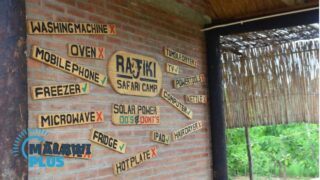Extended Family and Community Sharing in Malawi
“Mwana wa nzako, ndiwako yemwe, ukachenjera manja udya naye” (A neighbor’s child is yours as well, treat him well – he’ll remember you.”).
This is the core philosophy of the communal life that exists among Malawians.
A child is the responsibility of everyone, and each village thinks of itself as one big family.
Children are taught their family tree, and to respect and help their neighbors.
Within communal living, the rules are very simple: neighbors, friends, and relations turn up unannounced, and you welcome them with a smile.
Almost everyone is “related” in some way to the next person – literally related, through family or marriage, or connected by school or church, or through parents or grandparents living or working together.
Responsibility for looking after the elderly or any orphans in the village falls on everyone.
The old ones enjoy the companionship, and being looked after by the whole village, and children from other families are expected to help by cooking, cleaning, fetching, and carrying.
There are only two homes for elderly people in Malawi, and these are basically filled with foreign nationals who have made the country their home.
Orphans are normally taken in by their relations or, in urban areas, community social organizations that have orphanages.
While the legal system provides for adoption, most children are raised by families who regard them as their own without going through the formal adoption process.
Girls, especially in the villages, are expected to help their neighbors when they draw water or go to the maize mill; boys are expected to help during harvest and with other chores around the household, including herding animals.
An adult who sees a friend’s child misbehaving can reprimand and report him or her to the parents and not all claims of “relationship” refer to blood relations; they might just be neighbors.
If you have something that your neighbors don’t have, or that they need, you can be asked to lend it, or you can offer its use, without expecting payment of any kind; it is your obligation as a good neighbor, or as a member of the extended family, to help them.
In urban centers, there is a mixture of traditional and Western communal living.







